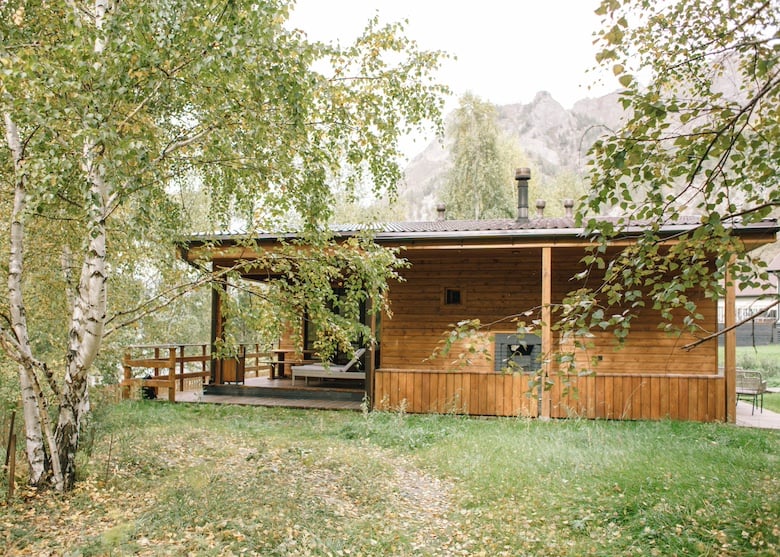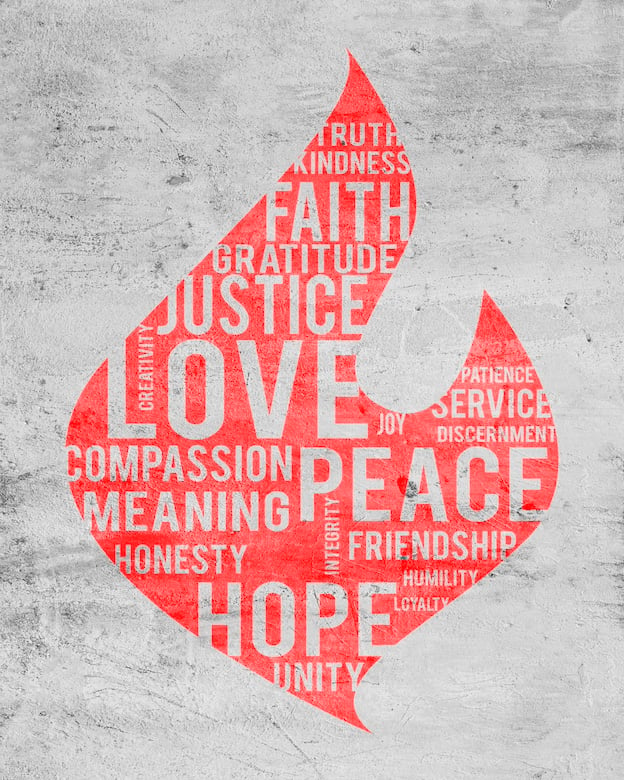
“The very least you can do in your life is figure out what you hope for. And the most you can do is live inside that hope. Not admire it from a distance but live right in it, under its roof.” ― Barbara Kingsolver
Recently my husband and I traveled in Europe and had a transfer at the Budapest Airport in Hungary, a country considered “competitive authoritarian” under the leadership of Viktor Orbán. In his past fifteen years of leadership, he’s effectively wrested control of the media, universities, and other narrators of the story of his country. Some would say government control of information in Hungary amounts to propaganda. So as I noticed on screens throughout the Budapest Airport a display stating the airport had won “Best Airport in the EU,” I was instantly skeptical. I had recently been in other airports in the EU, and I can tell you, they are far and away and clear as day nicer airports. Because of the Orbán government’s control of information in Hungary, I couldn’t believe what I was reading on the sign. It so contrasted with what I’d seen with my own eyes. The trouble is, I didn’t know what to believe. Were the signs a lie, or was the competition the airport won somehow “cooked up”? I’ll never know.
That is what propaganda does. It makes us second guess everything. It lead us to constant skepticism and not knowing what to believe. The propagandists want us confused. Against scientific and data-analysis consensus and often against our own experience of reality, they want us to ask: Is what I’m seeing real, or is what they’re saying real? Is climate change a hoax? Were the results of the 2020 election valid? Does the measles vaccine cause autism? Was January 6th, 2021, a “day of love”? Are they only deporting violent criminals?
Parallels with the Past
Early in the first term of our president, in 2017, I started reading Hannah Arendt’s The Origins of Totalitarianism. The book felt chillingly heartbreakingly shatteringly timely—long before the policies of our president came to fruition as they’re doing today. In 2017, some saw such parallels as overblown and alarmist. But today, the story is different. Now I frequently encounter discussions of Arendt in the mainstream, with people raising the prospect that she is a voice for this moment as we are poised to lose touch with democracy and potentially already are.
One of the things Arendt drives home is that authoritarians and their purveyors of propaganda prosper in part by making us doubt our “lying eyes,” by making us disbelieve pretty much everything. I think of certain news networks and prominent voices in social media. We see a veering toward this kind of authoritarianism interwoven with many trends that are by now so familiar they hardly need repeating. Our democratic slippage has become positively banal, to use Arendt’s now-famous adjective.
What Does This Ask of Us?
I spend a lot of time pondering what this moment calls for. What it asks of people of conscience and people of faith. In particular, what it asks of my own faith group, Christians, at a time when a large faction of Christianity—statistically, white evangelicals—has become the president’s most vocal booster.
One thing I know is that the moment asks us to be grounded. Sometimes that grounding involves actual ground. As young people say, it evokes the need to go “touch grass.” Often I need to get out of my head, and out of this historical moment, by connecting with the things of nature. In part because that is where I experience God/spirit/the eternal. In part because that is where I’m reminded of things that will be here long after our political moment—birds, trees, clouds, grass—and that have been here long before. Did you know there is a single bristlecone pine tree in California’s White Mountains that is 5,067 years old?
So too, I need to remember that the person of Jesus showed us the face of God at a time not entirely dissimilar to today, when the Roman Empire had consolidated power and wealth to a degree that human freedom was substantially curtailed and human dignity assaulted. Our tradition casts Jesus as a direct challenge to this political system (see here my article on this aspect of the Christmas stories in Matthew and Luke). Jesus chose to use the word “kingdom” to describe what he represented; in so doing, he turned the concept on its head. Jesus is the parable of what “God’s reign” entails. He portrayed it as a direct challenge to whatever earthly kings do and say. What does that call from Christians today? What does it mean to be faithful followers of Jesus in our moment? It means to live according to an altogether different reign than that of earthly kings.

Jesus as Parable
Stanley Hauerwas articulates it this way:
“[Jesus’] whole self is an act of participation in God’s purpose for humankind. Jesus represents, embodies, and is the supreme agent of the kingdom…. He is the parable of what God’s kingly rule looks like.
…The reality of God’s kingdom is manifest through Jesus’ healings and exorcisms, where he comes face to face with the demons that rule our lives and this world and decisively defeats them (Luke 11:20). It is also revealed in Jesus’ relations with others. He enjoys meals with the poor and outcast, demonstrating a new social order based not on status but on a justice that makes right all our relationships. Finally, God’s kingdom is manifested in the calling of Jesus’ first disciples, who leave all that they have and make a radical break with security and possessions, with the customs and habits of everyday life, for no other purpose than to share in his ministry of preaching the repentance needed to become part of the kingdom (Mark 3:13; Matt. 10:5-42).” (from pp. 12-13 of Jesus Changes Everything: A New World Made Possible)
My tradition also give me hope. Despite all of the worrying trends, I do have long-term hope. I don’t have hope in the sense of optimistically thinking everything will simply work out and near-term bad outcomes will dissipate, and/or God will intervene to save us from ourselves. Our created universe evidently includes choice as well as the playing out of natural laws; it includes “causes and conditions,” as Buddhists quite helpfully state. Clearly, God does not swoop in and take over our wills, forcing us to do the right thing. And clearly God does not swoop in to override natural laws and natural cycles. Instead, for all the talk about sovereignty, God offers a freedom-giving path. God chooses vulnerability.
Finding Hope
And yet. I do look around and look back at history and see a trend toward redemption. We may progress three steps forward and two steps back. But something is ultimately moving us in the direction of greater consciousness and openness to others. One only need glance at the common brutality of the Middle Ages to see we have moved forward—or even at far-more-widely-held and entrenched prejudices in the middle of the 20th century.
As I often state: my favorite image of God is as flow. God as a mighty flowing river, ever moving toward repair, toward fixing the things we creatures break. Sometimes the redemption takes a while, and sometimes things get caught or are resistant to the flow. But God is ever righting things. I know this can sound glib or cliché. Yet it is something I’ve seen play out in my life and the lives of those close to me over and over. So if the most reliable evidence is experience, this trend toward wholeness, this redemptive flow, is the most reliable thing I know. And we don’t sit back and pray and expect God to act supernaturally; we participate in redemption. We pray less with our words and more with our limbs. Or we pray with words not to manipulate God, but to connect with God and change our own hearts.
This is where I find hope. Not in a naïve idea that things cannot and will not possibly go wrong. Things go wrong all the time. But then there is the long view—the view that even what we break is, over time, repaired. Our creator is a mighty river of love and healing. This is what it means to trust and have hope grounded in that trust.
What does this mean with regard to our democracy? It means that if we are participants with God, we do what we individually can to protect it, each of us following our individual gifts and leadings. It also means that even if oppression and autocracy win in certain places in the short-run, we hold out hope that ultimately, they fail.
If you liked this article, please leave me a comment below; I am interested in your perspective. To support my writing, please subscribe and share with a friend!
Wren, winner of a 2022 Independent Publishers Award Bronze Medal
Winner of the 2022 Independent Publisher Awards Bronze Medal for Regional Fiction; Finalist for the 2022 National Indie Excellence Awards. (2021) Paperback publication of Wren , a novel. “Insightful novel tackles questions of parenthood, marriage, and friendship with finesse and empathy … with striking descriptions of Oregon topography.” —Kirkus Reviews (2018) Audiobook publication of Wren.














